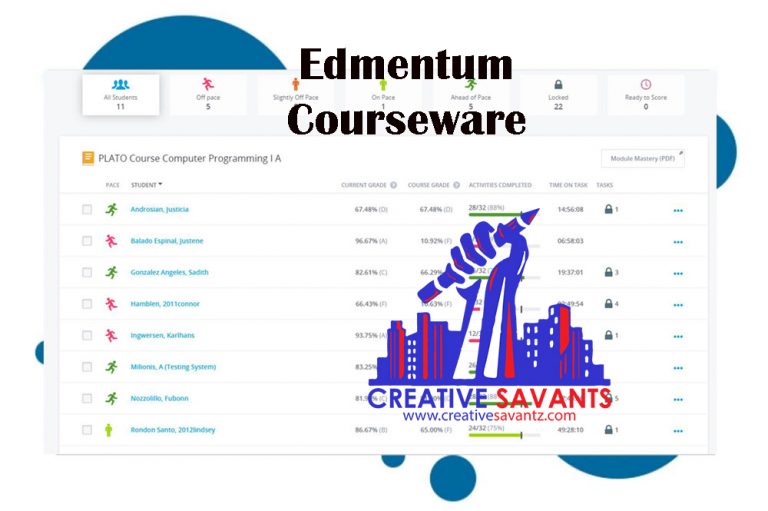Edmentum Tips, Tricks, And Resources
Is the rise of online education platforms truly leveling the academic playing field, or is it inadvertently fostering a culture of shortcuts and compromised learning? The whispers in online student communities suggest a troubling trend: the pursuit of answers over understanding.
The digital age has revolutionized education, offering unprecedented flexibility and access to knowledge. Platforms like Edmentum, designed for credit recovery and online learning, have become integral to many students' academic journeys. Yet, alongside the genuine pursuit of knowledge, a shadow economy of answer-seeking has emerged. Students, facing the pressures of deadlines and grades, are increasingly turning to online resources like Brainly, Quizlet, and even hacking tools to bypass the learning process altogether. This raises a critical question: are these platforms enabling genuine learning or simply facilitating a superficial grasp of the material?
| Platform | Edmentum |
| Type | Online Learning Platform |
| Purpose | Credit Recovery, Original Credit, and Supplemental Learning |
| Features | Self-paced courses, teacher-graded assignments, mastery tests, progress tracking |
| Concerns | Potential for academic dishonesty, reliance on answer keys and online resources, bypassing true learning |
| Reference | https://www.edmentum.com/ |
Within the bustling forums and subreddits dedicated to online learning, a distinct narrative emerges. Students share tips and tricks, not for mastering complex concepts, but for circumventing the system. "Just Google the answer key," one post advises, highlighting a concerning ease of access to test answers. Others discuss using browser extensions like Tampermonkey to reveal hidden answer buttons or manipulating inspect element features to uncover solutions. The prevalence of these discussions suggests a widespread acceptance of cheating, normalized by the anonymity and perceived lack of oversight in the online environment.
The reliance on platforms like Brainly, a crowdsourced homework help site, further complicates the issue. While Brainly can be a valuable resource for collaborative learning and clarifying doubts, its often misused as a quick fix for assignments. Students post questions verbatim from their Edmentum coursework, seeking ready-made answers rather than engaging with the material. This practice, while seemingly harmless, undermines the fundamental purpose of education: to cultivate critical thinking and problem-solving skills.
The very structure of Edmentum, with its self-paced modules and automated grading, inadvertently contributes to this problem. Students report that the platform's "self-checked" nature creates a sense of detachment from the learning process. "They don't care what you type," one student observes, suggesting a perception that effort and understanding are secondary to simply completing the assignments. This perceived lack of accountability can erode the intrinsic motivation to learn, further incentivizing the search for shortcuts.
Beyond the ethical implications, the reliance on answer keys and online resources has significant pedagogical consequences. Students who bypass the struggle of grappling with difficult concepts miss out on the crucial process of knowledge construction. They fail to develop the deep understanding necessary for future academic success and real-world application. This superficial learning ultimately hinders their ability to think critically, analyze information, and solve problems independently.
The discussion threads themselves reveal a spectrum of perspectives. Some students express genuine confusion and frustration with the material, seeking legitimate help. Others openly admit to seeking shortcuts, prioritizing grades over genuine learning. One student, preparing for end-of-semester tests, asks about the number of attempts allowed and whether answers are readily available online, betraying an anxiety focused on performance rather than mastery. These anxieties, while understandable, underscore the pressure-cooker environment that can drive students to compromise their academic integrity.
The challenge lies in finding a balance between leveraging the benefits of online learning and mitigating the risks of academic dishonesty. Educators, platform developers, and students themselves must collaborate to foster a culture of integrity and genuine learning. This requires a multi-pronged approach, including strengthening online proctoring methods, designing assessments that prioritize critical thinking over rote memorization, and promoting a learning environment that values effort and understanding over mere completion. The future of online education depends on it.
The whispers in online forums, while concerning, also offer a valuable opportunity for reflection. They highlight the need for a more nuanced understanding of the challenges and opportunities presented by online learning. By addressing these challenges head-on, we can ensure that digital education platforms fulfill their promise of expanding access to knowledge while upholding the integrity of the learning process itself.


